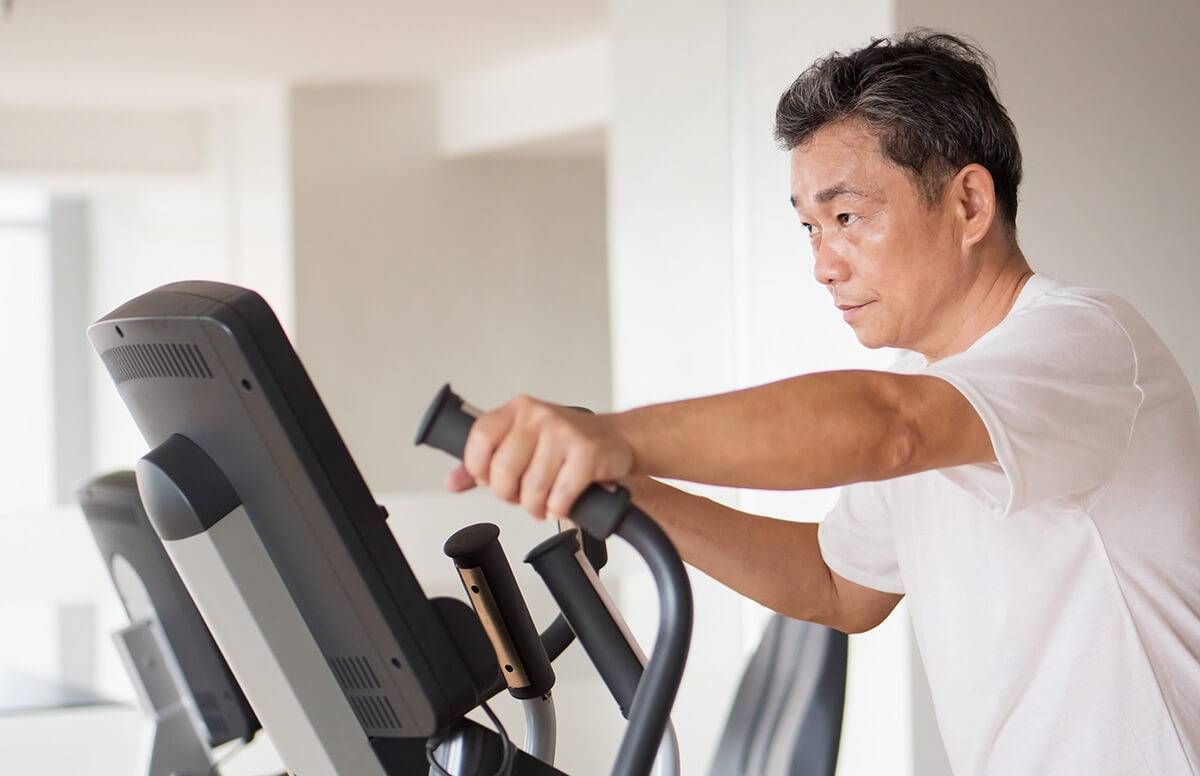Is a Fitness Challenge Right for You?
If you're tired of your usual exercise, try switching things up
Most of us in our 50s and beyond know that staying in shape is one of the keys to every other dream or goal we have. Without our health and mobility, everything else we might want to do is that much harder, if not impossible.

Still, after years of jogging, cycling and cardio classes, it’s hard to continue generating enthusiasm about keeping our bones and muscles strong. Just the thought of one more CrossFit session or training for another fun run can be uninspiring. Enter the latest way to stay in shape: fitness challenges.
Fitness challenges are sets of different exercises with the number of repetitions increasing daily. You start at a low number and, 30 days later, you’re doubling or even quadrupling your effort. You’re also in better shape, and not nearly as bored as you would be if you’d just slogged through the same gym routine you’ve been doing for the last year.
A Variety of Fitness Challenge Choices
Type in the words “Fitness Challenges” on Pinterest — or a general search engine like Google — and you’ll be greeted with enough different exercise regimens to find the perfect one for your fitness level and interest. Some focus on legs, arms, back and shoulders all in one routine. Others concentrate on a specific area, like abs or quadriceps. Some are for beginners, and others are designed for fit folks who need a change in their regular workout.
Whatever the exact setup, the moves are familiar and manageable, and the increase is gradual.
One popular challenge was devised by Jennifer Hall on her blog, Dancing in the Rain. Hall writes about being a widow and a single parent, health issues and life’s ups and downs, but also addresses staying in shape.
Her basic “30-Day Fitness Challenge” starts with five push-ups, 25 squats, 10 crunches and 20 lunges. Thirty days later, those taking the challenge are up to 40 push-ups, 135 squats, 100 crunches and 50 lunges. Every few days during this month, you get a rest from one of the exercises. At its peak, it takes about 20 minutes — a doable start to a day. Then, regardless of what lies ahead, you have this task in your pocket.
A Better Way to Work Out?
Although fitness challenges are not generally high intensity, their benefits rely on the notion that short bursts of activity followed by a brief rest can help you get in shape more quickly than just doing the same thing every day expending little energy.
One of the best-known fitness challenges first appeared in fitness writer Gretchen Reynolds’ column for The New York Times Sunday Magazine, “The Scientific 7-Minute Workout.” It includes 12 exercises, each done for 30 seconds with a 10-second rest in between. The routine features jumping jacks, a wall-sit, crunches, lunges, planks and tricep dips.
The 7-Minute Workout was developed by exercise physiologist Chris Jordan at the Human Performance Institute in Orlando, Fla. Based in science, it can be accessed through an app for your phone and in an advanced version that includes dumbbells and more difficult exercises.
Why Fitness Challenges Are Popular
The need for novelty and a bit more of a push is what makes fitness challenges so appealing. If you’re sick of one 30-day challenge, you know it’s going to end soon and can then move on to one that concentrates only on, say, push-ups or burpees (squat thrusts).
It’s easy to adapt the routine to match your own interests. You can do fitness challenges practically anywhere. And you don’t have to drive somewhere to get them done. At the end of 30 days, your abs are more defined and your legs are stronger.
We all know that not exercising is no longer an option, as some of us pretended when we were younger. York University professor Joe Baker, whose research is devoted to studying older athletes, believes physical decline comes from thinking we’re too old to perform and therefore stopping, rather than from the limitations of aging.
Fitness Challenge = Health and Happiness
But not everyone has to train for a marathon or join a gym. Finding a fitness challenge you like can move you toward fitness. Some do the challenges with a friend, but it’s not necessary. This can be your own private exercise time. Do it on off-cardio days and you’ve got yourself a week of getting and staying in shape without all the hassle or potential boredom of your same old routine at the gym.
Sociologist and epidemiologist Esteban Calvo, who teaches aging and the life course at Columbia University and Universidad Diego Portales in Chile, says challenge is one of the key factors influencing health and happiness in older adults. It may seem comforting to do the same exercise routine day in and day out but, he says, “it’s remaining stimulated that’s truly important.”

